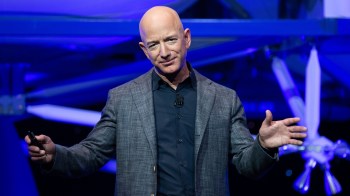TEXT OF COMMENTARY
Scott Jagow: Taxpayers expect some changes in the business world after all this economic fallout. But if you listen closely to company executives, they might not want that. Commentator Robert Reich believes a giant conflict of interest is brewing.
Robert Reich: The public believes the bailouts of Wall Street and the Big Three will permanently change these industries, but I doubt that’s what industry insiders want. Goldman Sach’s CEO Lloyd Blankfein, for example, said recently the firm’s business strategy doesn’t need to change.
What? Goldman got $10 billion of taxpayer money precisely because it and other big banks were so over-leveraged they threatened the whole financial system. I can understand why Blankfein doesn’t want to change — he took home $54 million last year. But the public expects real reform for its $10 billion at Goldman and tens of billions more in other banks.
The Big Three have agreed to become far more fuel efficient, as a condition for their bailout. But they promised this before — during the oil crisis of the 1970’s. They never delivered then, because their biggest profits were in gas guzzlers that consumers wanted to buy as soon as the first oil crisis was over.
Will history repeat itself? Now that gas prices are half what they were six months ago, consumers who can afford it are suddenly less interested in fuel efficiency. They’re buying fewer hybrids and showing renewed interest in SUVs. So why should we think Detroit will revolutionize itself?
Now I’m not so cynical as to accuse anyone of bad faith. It’s just that both Wall Street and Detroit earned big bucks from their old strategies, before the bottom fell out of the economy. So it’s natural to think they’d view the bailouts as ways to hold on until the economy rebounds. They see their problem as cyclical, not structural.
But the bailouts have been sold to the public as means toward fundamental change in finance and autos. This means if the bailouts are to do what they’re supposed to do — stop Wall Street from wild risk-taking with piles of borrowed money, and push the auto industry into making fundamentally new products — Washington will not only have to set strict standards, but watch over these industries even when the recession is over.
Jagow: Robert Reich teaches professor of public policy at the University of California, Berkeley. His most recent book is “Supercapitalism.”
There’s a lot happening in the world. Through it all, Marketplace is here for you.
You rely on Marketplace to break down the world’s events and tell you how it affects you in a fact-based, approachable way. We rely on your financial support to keep making that possible.
Your donation today powers the independent journalism that you rely on. For just $5/month, you can help sustain Marketplace so we can keep reporting on the things that matter to you.


















